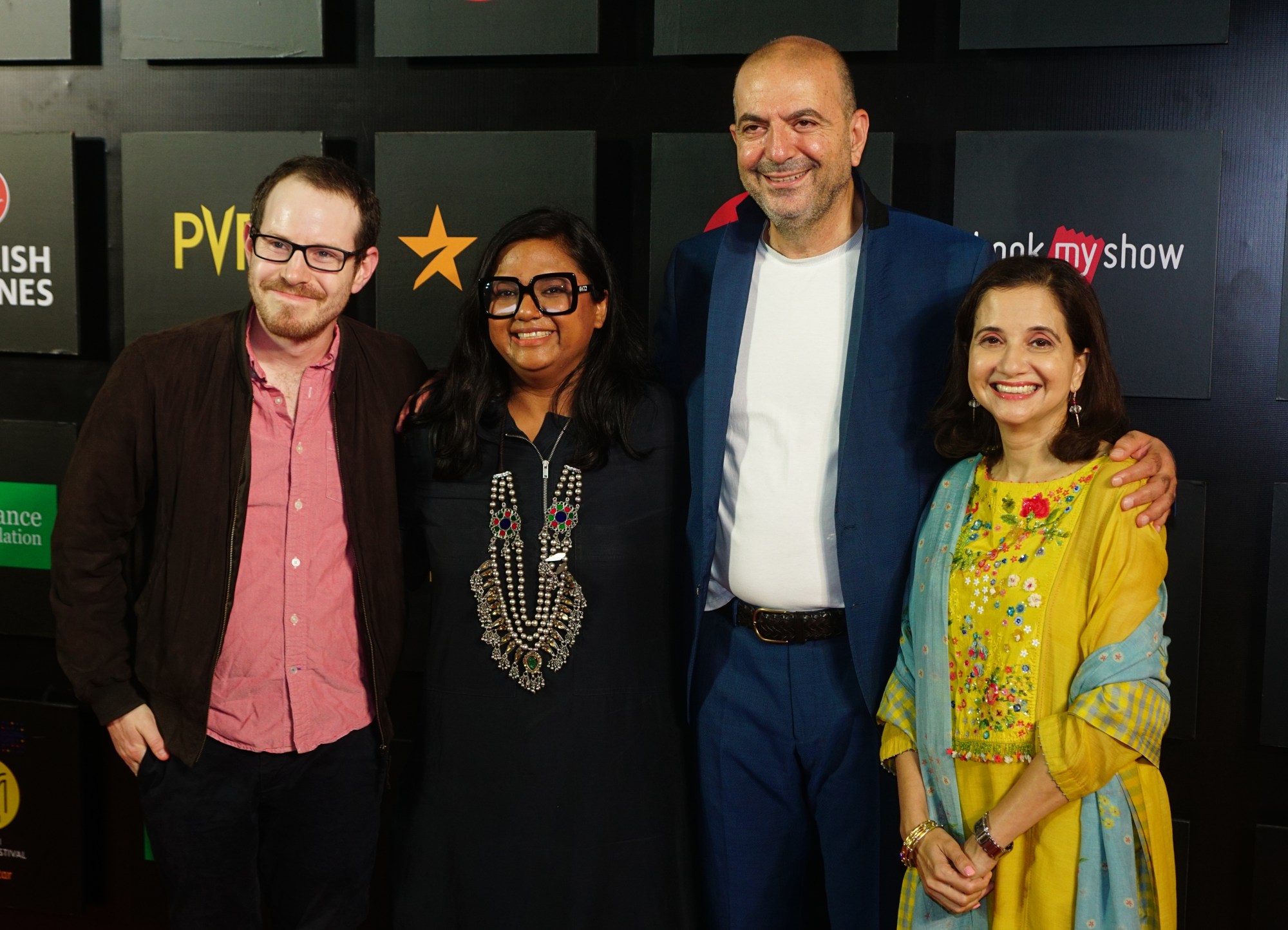
- Festivals
Jio MAMI: The 21st Mumbai Film Festival Goes Low-Key
Those of us who regularly attend the Mumbai Film Festival know how to deal with the shortcomings of Mumbai when making the 24-hour trip from Los Angeles. Aside from the jet lag, you steel yourself for the 95-degree heat, allow hours of lead time to battle the horrendous traffic, and then strive for a zen state of mind, because if you don’t, the sweltering, noisy, overcrowded city bursting at the seams will strain your last reserves and turn you into a gibbering wreck. Aaram karo – relax – has to be your mantra. Or you could desperately chant om, more urgent than ever this year as the tail end of the monsoon lashed the city with downpours.
However, the festival itself is outstanding, remarkable because it came back from a near-death experience a mere five years ago when crowdfunding had to save the 2014 iteration. Now with its savior Jio (a telecom company owned by the behemoth Reliance) as its name sponsor, the festival has gone from strength to strength, with over 190 films, 13 world premieres, and 15 debuts, from over 53 countries in 49 languages.
Unlike past years where the opening night ceremonies have been held in spectacular locations like the Royal Opera House or the Gateway of India, this year’s was low-key and quick in a suburban auditorium, although with the usual red carpet and requisite Bollywood stars. The juries were introduced and welcomed and we were in and out in an hour. The international jury was headed by Hany Abu-Assad. His fellow jurors were Julie Huntsinger, ED of the Telluride festival; Mark Adams, AD of the Edinburgh festival; and filmmakers Vetri Maaran and Zoya Akhtar. The opening night film, which actually screened the following day, was the world premiere of a film by a woman director, Geetu Mohandas’s Malayalam drama, Moothon (The Elder One), a crime drama about a 14-year-old boy who comes to Mumbai in search of his brother.
The festival has several standout sections. India Gold is a section of the festival focusing on contemporary films by Indian filmmakers produced in India. This year the offerings included ten films showcasing India’s cultural diversity and included films in languages like Pahari, Maithili, Assamese, Nepali, Hindi, and Bengali. Dimensions Mumbai is a sidebar showcasing Indian filmmakers under 25. Rendezvous with French Cinema has been a regular section of the festival for several years, this year showcasing François Ozon’s Grace a Dieu, Arnaud Desplechin’s Roubaix, Une Lumiere, and Varda Par Agnes, the famed filmmaker’s documentary about her oeuvre, among others. And Restored Classics included screenings of The Cremator, a Czech film by director Juraj Herz, reportedly Steven Soderbergh’s favorite film, and David Lynch’s Blue Velvet.
Fans lined up for hours around the block for Hollywood films like The Irishman, Ad Astra, Marriage Story, Midsommar, Honeyboy and The Two Popes screening at eight different venues around the city. In honor of Popes, Fernando Meirelles was awarded the international Excellence in Cinema award and conducted a Master Class for eager film students and film lovers. Bollywood actress Deepti Naval was awarded the domestic counterpart for her decades-long career in Indian cinema
Highlights of the festival included a screening of Bombay Rose, a hand-painted animation film by Gitanjali Rao about the choice a flower seller has to make between protecting her family and choosing love. A Master Class with Abu-Assad and Indian actress Nandita Das was very well received. “Learn to take criticism,” he told the audience. “Art is a mirror, and if the audience can’t see themselves in the mirror, then there will be feedback.” And a ‘Word to Screen Market’ was held for book option opportunities in six Indian languages, presented to directors and production houses. Established and new Indian authors spoke about their writing and networked with film executives.
And then there was the HFPA reception hosted by attending members where jurors, actors, film executives, press and assorted gatecrashers had their photos taken on the Globes-branded step-and-repeat and partied the night away.
At the closing ceremony at the JW Marriott presided over by Bollywood star and festival Chair Deepika Padukone, Prateek Vats’ Eeb Allay Ooo! about a man whose job it is to scare away monkeys on New Delhi’s government buildings won the Golden Gateway award in the India Gold section. Gitanjali Rao’s Bombay Rose, which had previously debuted in Venice, won the Silver Gateway. In the International Competition, the winner of the Golden Gateway award was Honeyland, a Macedonian documentary about beekeepers directed by Ljubomir Stefanov and Tamara Kotevska. The Silver Gateway was awarded to Rodd Rathjen’s Buoyancy, an Australian film about the trafficking of a Cambodian child.

